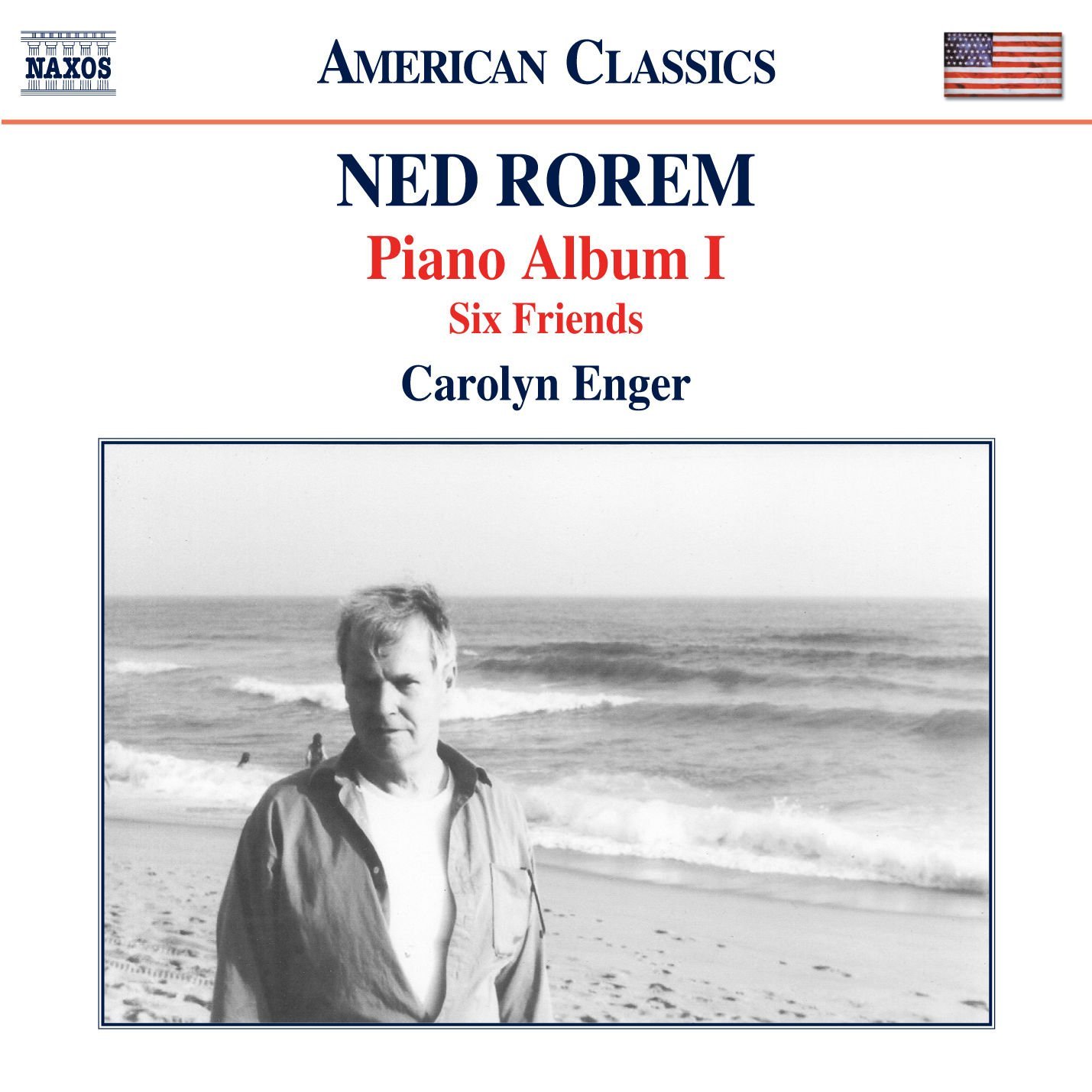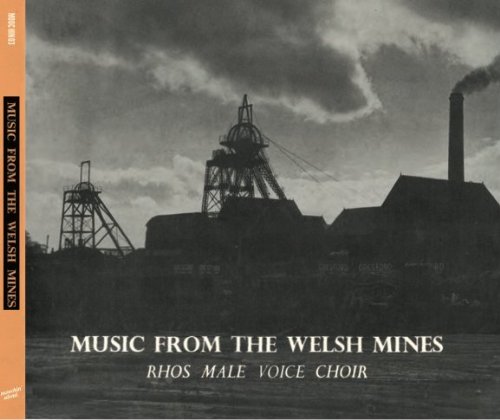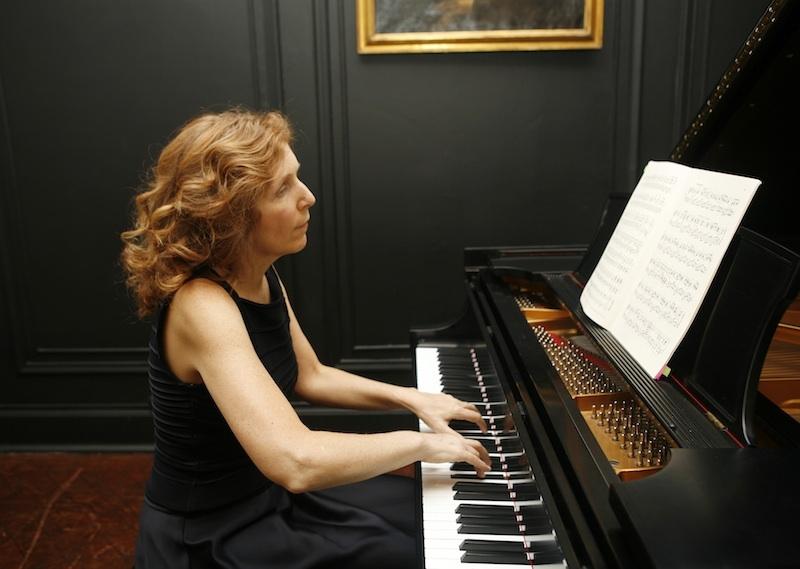
The prolific Ned Rorem will be 91 this autumn. He's still an active composer, and the 33 short piano pieces collected on this engaging, low-key CD are all tributes to friendship. Few of these works exceed two minutes, and there's not a dud among them. Many contain material that was developed into larger-scale pieces, though they feel more like elegant line drawings than crude sketches. Rorem's sophisticated, unashamedly tonal style never palls, and the lack of superficial flashiness is a virtue. This music isn't technically difficult, but it's hard to pull off. Carolyn Enger's quiet confidence serves the composer well. There's a refreshing informality about this disc, as if someone's just pressed the record button and let Enger get on with it. Most of the 27 pieces collected in 2003's Piano Album 1 were dedicated to Rorem's late partner, musician James Holmes. Nineteen Measures for Jim is exactly that – two cannily interwoven voices, commemorating 19 years of an ongoing relationship.
There's a beautiful 80 second doodle based around a theme by Thomas Tallis, and a witty Serenade for Two Paws inspired by Rorem's dog. Snapshot of Jack combines elegance and heartfelt simplicity, and Forty Chords for Mark on April First is exactly what the title suggests, the slow, swelling crescendo impeccably controlled by Enger. She also plays Rorem's compact 2007 suite Six Friends. For Barbara has a melody to die for, and 75 Notes for Jerry oozes cool beauty. The sleight of hand is dazzling; fruity sounding chords turn out on closer listening to be made up of just two or three notes. Remarkable, accessible music.
Joaquín Turina had a lucky encounter with a senior colleague in 1907. The composer Isaac Albéniz wasn't impressed by Turina's, polite, French-sounding Piano Quintet. He made Turina promise never to write anything like it again, urging him instead to base his subsequent music on Andalusian folksong. Turina took the hint. And how. You can feel the heat. The effects and mannerisms would sound clichéd if you didn't realise that Turina, along with de Falla, pioneered this style. Sforzando chords in cellos and basses. Muted trumpets. Modal harmonies and oscillating figures in high strings. Extravagant percussion. All present. Crucially, the music never sounds too polite or well-manicured; you're always slightly fearful that the brasher moments will lead to breakdown and collapse. Juanjo Mena's second Turina anthology contains several entertaining rarities. The composer's first orchestral work, La Procesión del Rocio, builds to a clangorous, gaudy climax. It's great fun, but perhaps the least significant work in this anthology. The five Danzas gitanas, better known in Turina's piano arrangement, are pungent, sultry miniatures. Martin Roscoe is a game soloist in the late Rapsodia sinfónica for piano and strings. It's irresistible stuff – and, at barely nine minutes, you're left wishing it was twice as long.
On a much larger scale is the Canto a Sevilla, a seven-movement work expanded from a cycle of four songs originally for soprano and piano. Muñoz San Román's texts are mostly a touristic tribute to the city, though the third song, El fantasme, is an atmospheric, unsettling nocturne. Turina's light, transparent scoring allows soprano María Espada to float effortlessly over the top. Alert, crisp playing from the BBC Philharmonic and near-perfect engineering, the sound punchy and immediate. Do investigate.
This is a fascinating reissue, and one in which the musical values carry as much weight as the historical ones. The Rhos Male Voice Choir, based near Wrexham, recorded this anthology in St John's Wood in 1957. Some of the singers sported bandages after a non-fatal accident in the local colliery the previous evening. Some members of the choir were survivors of the infamous Gresford disaster of 1934, which killed 266 miners. What a sound this lot make. The richness and warmth of the basses has to be heard to be believed; they'd sound wonderful in Rachmaninov. Intonation and diction are consistently impeccable, so the richer harmonies pack a thrilling punch. And they're amateurs, their skills testament to a time and place when collaborative music was central to everyday life.
There are so many moments to swoon over. J Parson Price's gorgeous, bittersweet Hiraeth, "'that untranslatable word expressing the exiles' longing", is a highlight, as is a beautiful account of Arwel Hughes's Tydi A, Roddaist. Schubert's setting of The Lord is my Shepherd (Psalm 23) is sung with startling restraint. An unnamed organist accompanies discreetly. Two versions of Land of my Fathers are both a little stately, but they'll have the hairs on the back of your neck standing on end. The low-fi recording has scrubbed up well, and the big moments have weighty presence. These singers make every note matter.














Add comment